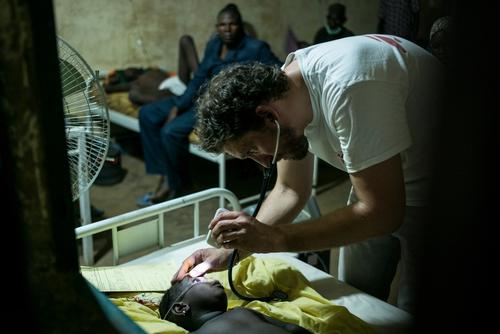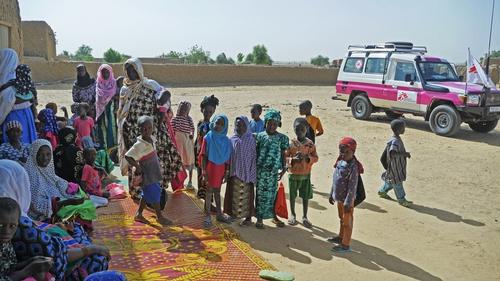We respond to the needs of displaced people and assist refugees from Burkina Faso in Koro and Douentza. We also treat the war-wounded in Ansongo and Gao and provide various medical services, including maternal and paediatric care, screening and treatment for malnutrition, mental healthcare, and emergency surgery across all our projects in the country.
Our activities in 2023 in Mali
Data and information from the International Activity Report 2023.
1,478
1,478
€37.9 M
37.9M
1992
1992
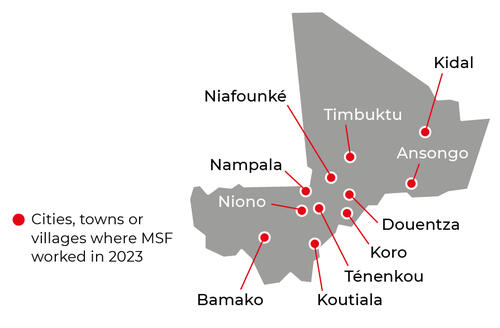

530,000
530,
66,000
66,
1,870
1,87

1,040
1,04
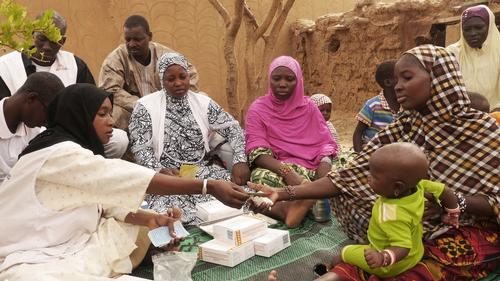
Vaccination rate increases by 50 per cent in Ansongo
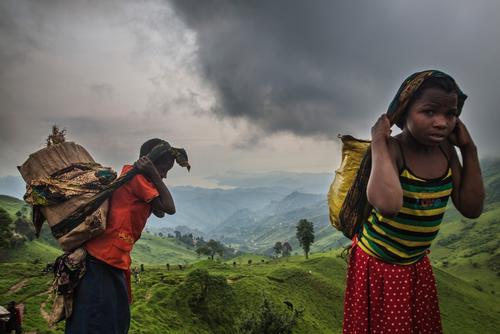
World Malaria Day: five challenges in the fight against the disease
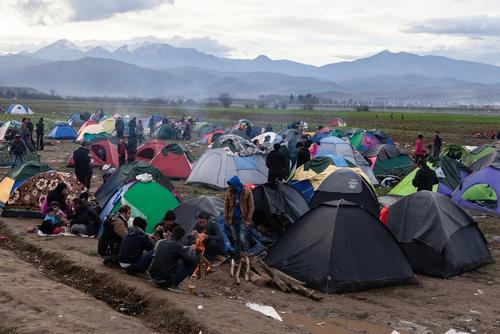
EU Migration Crisis Update - March 2016

Ebola crisis update - 14 January 2016

End of Ebola outbreak in West Africa: World must learn lesson for future outbreaks
